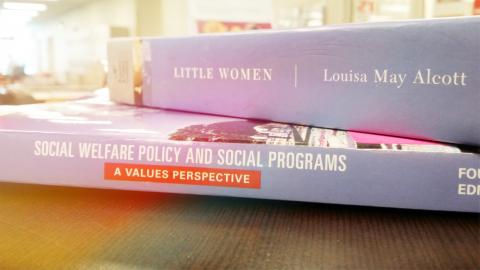Booking on a Budget
Oct 22,2015
Try to think back on freshman year of college. During this year, it is new for students to have to buy books since graduating high school. Now think back on the most expensive textbook(s) that was needed for class. Your eyes probably went wide with horror as many do. Yes, it's true. When entering college, more money goes towards student textbooks than anything else. The excessive prices can cause students to struggle with money for other necessities. It doesn't have to be that way. There are various actions students can take to ensure a happy wallet.
1. Is your textbook required? The most resourceful and efficient way to achieving a happier bank account is learning what textbooks are and aren’t required for a class. If it says not required, the smart step is speaking with your teacher. If the book really isn’t required, don’t go for it. Save that money for something important.
2. Comparing and contrasting prices. This requires some intense researching around the internet for college websites and/or general websites that sell college textbooks. Look for student discounts that may be provided along with shipping cost, customer support and even return deals offered. Search for the cost of new or used books along with E-books. Most importantly, look for reviews of the websites from other students. After obtaining a good list of contenders, begin searching for your textbooks and comparing each of the prices not only to the price that the books would cost at your university but also from the various websites that you listed. When comparing and contrasting prices, remember to look at both the buy and rental price.
3. Rent or buy? Sometimes if the books are smaller and paperback the prices will be lower. In that case, it’s advised that you should buy it. Even smaller hardbacks cost less. Be careful when looking into the buying prices. More often than not, the buyback price, meaning the money the school offers you for the book, is normally a lot lower than when you bought the textbook. Especially if the book is new and it was bought from the direct university, the price will not be the same. When buying from websites, the consequences could be worse. An abundance of times, the company will not buy it back for it is neither in a high request or they have a bundle of them already accessible.
However, most money can be saved by renting required textbooks. Since keeping the book is not required in renting, prices are lowered. Renting also gives the student a certain amount of days that they can choose from, the minimum most commonly being thirty days to use the book(s) before the renter has to return them to the company. Time can usually be extended on textbooks as well if a student placed the wrong amount of days they needed or the class simply ran longer. A great renting service that students can look into is the HonorSociety.org. They provide huge savings, free shipping both ways, easy returns, and top-notch customer support. The highlight of renting their textbooks is literally highlighting. Students can use the books they rented and highlight notes. Most rental services do not provide this opportunity, for the mere fact that a returning book is better if not marked all over.
There are a lot of things college students have to spend their money on. Clothes, bills, food, etc. There’s little time to be worrying about the next big cash withdrawal they'll need to make for books. It's a hassle and can lead to stress powered on by classes and studying. It's time students stopped seeing the need to complain about the prices of college textbooks and instead rejoice in the fact that there's one less thing that'll eat up their bank accounts.





